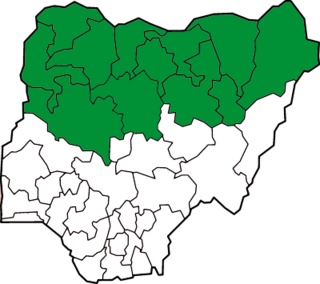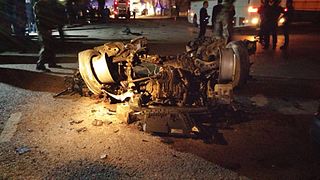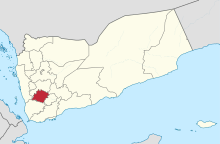
A series of attacks occurred during Christmas Day church services in northern Nigeria on 25 December 2011. There were bomb blasts and shootings at churches in Madalla, Jos, Gadaka, and Damaturu. A total of 41 people were reported dead.

In December 2013, two separate suicide bombings a day apart targeted mass transportation in the city of Volgograd, in the Volgograd Oblast of Southern Russia, killing 34 people overall, including both perpetrators. The attacks followed a bus bombing carried out in the same city two months earlier.

On 15 March 2015, two explosions took place at Roman Catholic Church and Christ Church during Sunday service in Youhanabad, Lahore, Pakistan. At least 15 people were killed and seventy were wounded in the attacks.
The Qatif and Dammam mosque bombings occurred on 22 and 29 May 2015. On Friday May 22, a suicide bomber attacked the Shia "Imam Ali ibn Abi Talib Mosque" situated in Qudeih village of Qatif city in Eastern Province, Saudi Arabia. The Islamic State claimed responsibility for the blast, which killed at least 21 people. The event is the second deadly attack against Shia in six months.

A suicide bombing took place on 26 June 2015 at a Shia mosque in Kuwait. The Islamic State of Iraq and the Levant claimed responsibility for the attack. Sabah al-Sabah, the Emir at the time, arrived at the location of the incident after a short period of time. Twenty-seven people were killed and 227 people were wounded.

The Suruç bombing was a suicide attack by the Turkish sect of Islamic State named Dokumacılar against Turkish leftists that took place in the Suruç district of Şanlıurfa Province in Turkey on 20 July 2015, outside the Amara Culture Centre. A total of 34 people were killed and 104 were reported injured. Most victims were members of the Socialist Party of the Oppressed (ESP) Youth Wing and the Socialist Youth Associations Federation (SGDF), university students who were giving a press statement on their planned trip to reconstruct the Syrian border town of Kobanî.

On 10 October 2015 at 10:04 local time (EEST) in Ankara, the capital city of Turkey, two bombs were detonated outside Ankara Central railway station. With a death toll of 109 civilians, the attack surpassed the 2013 Reyhanlı bombings as the deadliest terror attack in Turkish history. Another 500 people were injured. Censorship monitoring group Turkey Blocks identified nationwide slowing of social media services in the aftermath of the blasts, described by rights group Human Rights Watch as an "extrajudicial" measure to restrict independent media coverage of the incident.

On 12 January 2016, a suicide attack in Istanbul's historic Sultanahmet district killed 13 people, all foreigners, and injured 14 others. The attack occurred at 10:20 local time, near the Blue Mosque and the Hagia Sophia, an area popular among tourists. The attacker was Nabil Fadli, a Syrian member of the Islamic State.

The February 2016 Ankara bombing killed at least 30 people and injured 60 in the capital of Turkey. According to Turkish authorities, the attack targeted a convoy of vehicles carrying both civilian and military personnel working at the military headquarters during the evening rush hour as the vehicles were stopped at traffic lights at an intersection with İsmet İnönü Boulevard close to Kızılay neighborhood. Several ministries, the headquarters of the army and the Turkish Parliament are located in the neighbourhood where the attack occurred. The Kurdistan Freedom Hawks (TAK) took responsibility for the attack and said they targeted security forces. Censorship monitoring organization Turkey Blocks reported nationwide internet restrictions beginning approximately one hour after the blast pursuant to an administrative order. The attack killed 14 military personnel, 14 civilian employees of the military, and a civilian.

The Islamic State – Yemen Province is a branch of the militant Islamist group Islamic State (IS), active in Yemen. IS announced the group's formation on 13 November 2014.
On the morning of 19 April 2016, Taliban militants attacked a security team responsible for protecting government VIPs in Kabul, Afghanistan. The initial attack killed 64 people and wounded 347. It was their biggest attack on an urban area since 2001.

On 20 August 2016, a suicide bomber targeted a Kurdish wedding in Gaziantep, Turkey. 57 people were killed and 66 injured in the attack, 14 critically.
The October 2016 Sinai attacks was a terrorist attack on an Egyptian army checkpoint in the city of Bir al-Abed, Egypt, on 14 October 2016. A group of militants armed with assault rifles and heavier weapons attacked an Egyptian army checkpoint while mortar rounds and rockets were fired directed to a military checkpoint. In response, the Egyptian military forces killed around 15 militants following the attack. The Islamic State's Wilayat Sinai branch claimed responsibility in a statement released later the same day.

On the evening of 10 December 2016, two explosions caused by a car bombing and suicide bombing in Istanbul's Beşiktaş municipality killed 48 people and injured 166 others. 39 of those killed were police officers, 7 were civilians and 2 were perpetrators. The Kurdistan Freedom Hawks (TAK) assumed responsibility, claiming that their members killed more than 100 police officers.

On 11 December 2016, a suicide bomber killed 189 people and injured 400+ others at St. Peter and St. Paul's Church, a chapel next to Saint Mark's Coptic Orthodox Cathedral, seat of the Coptic Orthodox Pope, in Cairo's Abbasia district. Egypt's President, Abdel Fattah el-Sisi identified the bomber as 22-year-old Mahmoud Shafiq Mohammed Mustafa, who had worn a suicide vest. el-Sisi reported that three men and a woman have been arrested in connection with the attack; two others are being sought. ISIS claimed responsibility for the attack.

On December 17, 2016, a suspected car bombing in Kayseri, Turkey killed 15 soldiers aboard a bus and wounded at least 55 others. According to the Daily Sabah newspaper, the soldiers — all low-ranking privates and non-commissioned officers — had been given permission for leave from the commando headquarters in the city. The explosion comes a week after 44 people were killed in a double bombing in Istanbul after a football match.
On 13 February 2017, a suicide bombing took place on the Mall Road in Lahore, Pakistan, where a group of chemists and pharmacists were holding a protest at Charing Cross in front of the Punjab provincial assembly. According to Punjab Police sources, 18 people were killed, including several police officials, and at least 87 were injured.
On 13 July 2018, ahead of Pakistan's general election, two bombings took place at election rallies in Bannu and Mastung.

The January2021 Baghdad bombings were a pair of terrorist attacks that occurred on 21 January 2021, carried out by two suicide bombers at an open-air market in central Baghdad, Iraq. They killed at least 32 people and injured another 110. This was the Iraqi capital’s first terrorist attack since 2019.
The 2022 Abu Dhabi attack was an attack against three oil tanker trucks and an under construction airport extension infrastructure in Abu Dhabi, United Arab Emirates conducted by the Houthi movement using drones and missiles. Although several missiles and drones were intercepted, 3 civilians were killed and 6 were injured by a drone attack.












